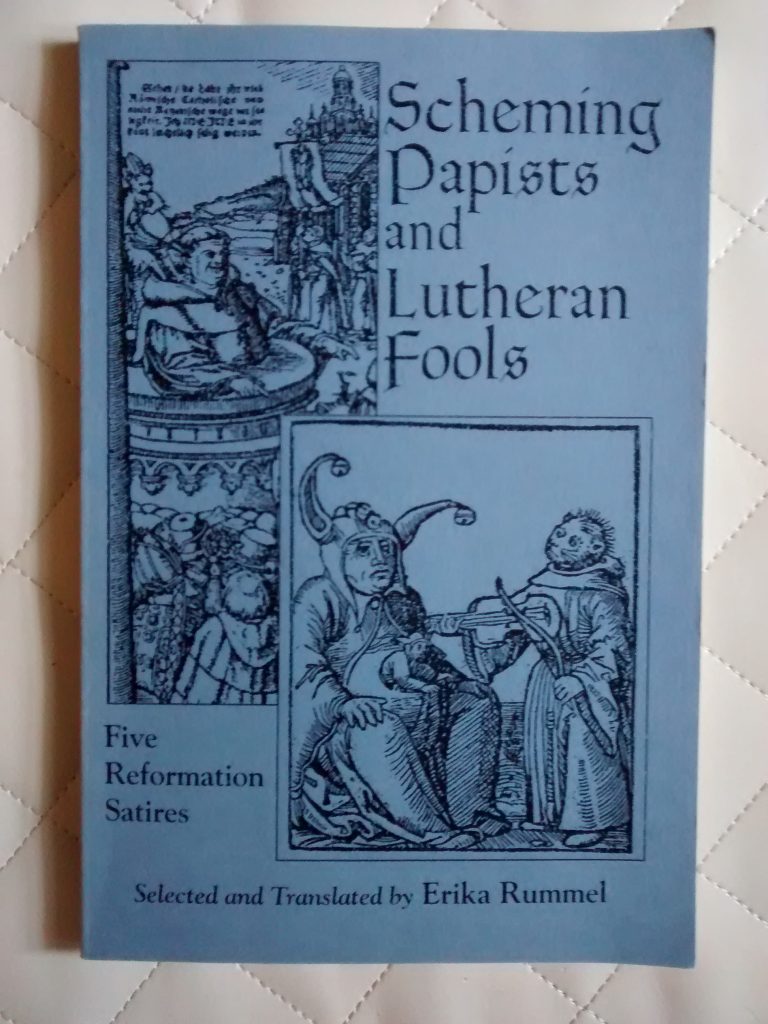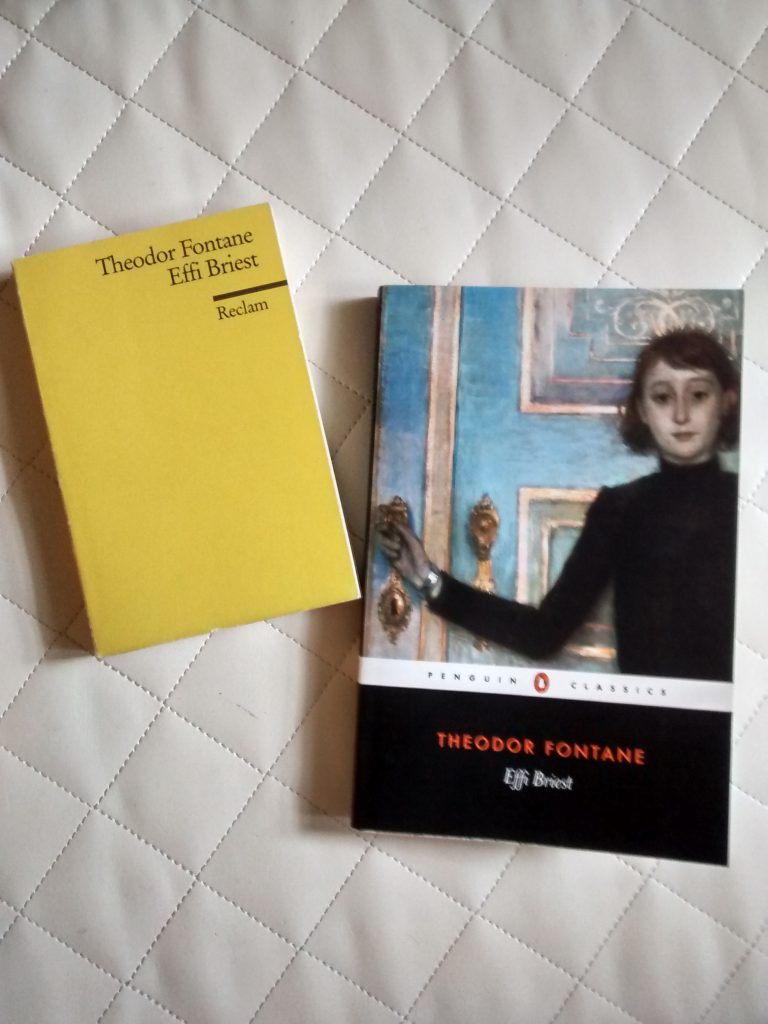In this post I promised to go through some pun-translation strategies.
What makes puns hard to translate is that there is almost never one “right” or “best” solution. Puns give rise to several different scenarios:
1. You just translate the straight meaning and write a footnote about how it was a pun in the source text. Sad, right? But very common in certain contexts, e.g. academia. I actually had to do it last week.
On the other hand, some academic translators do get creative, especially if the goal of the translation is twofold: to inform readers and to give them an experience of the text that parallels the original. Erika Rummel does this in her translation of Reformation dialogues, e.g.:
LEGATE: I also confer doctorates.
BRUNO: Donkey doctorates.
That line has a footnote, which reads: Literally, “troubles, not doctorates”; the pun dolores/doctores cannot be rendered into English.
For a dialogue that you might want to read out in class and have some fun with, inserting a new joke is a good idea. But she still has to explain the original joke in the footnote so students can be fully informed about the content of the source text.

2. If you’re working with related languages, you might get lucky: for example, Kurt Schuschnigg’s rhyming declaration “Bis in den Tod! Rot-Weiß-Rot!” is easily translated as “Red-White-Red until we’re dead!” because historical linguistics has done your work for you.
3. You can think of a similar pun using different words. In the 2015 film Er ist wieder da, main character Sawatzki thinks a rat is pregnant; the rat is actually male and its owner says: “Die sind die Eier.” (Lit. “Those are the eggs” with “eggs” being German slang for testicles.) Sawatzki, still confused about whether the rat is male or female, responds, “Die Ratten legen Eier?” (“Rats lay eggs?”). In English, your choices are “nuts” or “balls,” so the confusion over laying eggs is out. Instead, the subtitler came up with “Those are his nuts” – “Rats collect nuts too?” which is pretty good. (You can watch this movie on Netflix, by the way, as Look Who’s Back. It’s actually more about Hitler than it is about pet rats.)
4. In some cases, you have room to think of something very different from the original. In Fontane’s Effi Briest, Effi’s cousin tells a lame joke about Job because Bible jokes are all the rage in Berlin:
»Die Fragestellung – alle diese Witze treten nämlich in Frageform auf – ist übrigens in vorliegendem Falle von großer Simplizität und lautet: ‘Wer war der erste Kutscher?’ Und nun rate.«
»Nun, vielleicht Apollo.«
»Sehr gut. Du bist doch ein Daus, Effi. Ich wäre nicht darauf gekommen. Aber trotzdem, du triffst damit nicht ins Schwarze. «
»Nun, wer war es denn?«
»Der erste Kutscher war ‘Leid’. Denn schon im Buche Hiob heißt es: ‘Leid soll mir nicht widerfahren’, oder auch ‘wieder fahren’ in zwei Wörtern und mit einem e.«
OK. Basically, cousin Briest asks “Who was the first coachman?” and the answer is “sorrow,” because in the Book of Job it says “Sorrow shall not befall me” and in German the word for “befall” is “widerfahren,” which sounds just like “wieder fahren,” which in turn means “to drive again.” So, “Sorrow shall not befall me” and “Sorrow shall not drive me again”* sound alike in German, hence the joke.
As you can see, the original pun is completely untranslatable. What to do?

Here’s how Helen Chambers and Hugh Rorrison handled it in their translation for Penguin Classics:
‘The question in this case — all these jokes take the form of questions by the way — is of the utmost simplicity: “What was our Lord’s favourite plaything called?” Now guess.’
‘Little lambkin, perhaps.’
‘A brave try. You’re an ace, Effi. I’d never have thought of that. But you’re wide of the mark.’
‘Well, what was it then?’
‘Our Lord’s favourite plaything was called “Gladly”, because in the hymn it says ‘Gladly the cross I’d bear” or “cross-eyed bear”, “eyed”, e-y-e-d.’
They had to find a completely different joke that was equally cringey and also related to the Bible. Other translators would have thought of something else again — many of these would work (I say “many” because you have to check that the joke would have made sense in 1895, when Effi Briest came out).
When I first read this, I agreed that Chambers and Rorrison’s joke had the right level of lameness, but thought it erred in not actually being a “Bible joke” per se. Cousin Briest explicitly introduces it as a Bible joke and says the pun comes from the Book of Job, but “Gladly the cross I’d bear” is from a hymn. However, after much searching — searching through German websites that offer the full text of Luther’s Bible, but also global Google searches with and without quotation marks and with variations in phrasing — I don’t think cousin Briest’s punchline is actually a Bible verse at all. Apart from Effi Briest, the only place I found it was in this forum, where it’s attributed (falsely, I think) to the book of Daniel:
Wer war der erste Berlina? Das war Daniel in der Löwengrube: “Leid soll mir nicht widerfahren.” Damit ist auch die Frage beantwortet wer der erste Kutscher war -> Leid
Similarly, “Gladly the cross I’d bear” seems to be a misquotation from “Keep Thou My Way” by Fanny Crosby. So all in all, this joke matches both the style and the dubious sourcing of the original joke quite perfectly.
Those are a few examples of pun translation. Now, apropos my earlier post about how good MT could get, do you think an MT could ever deal with this problem? I don’t.
*********
*Although, does “Leid soll mir nicht wieder fahren,” actually make sense with that dative “mir”? Is it just an imperfection that makes the joke extra lame? Or is the speaker being driven into? Usually when you drive someone somewhere, that someone is in the accusative.
Re the Problem of Mir, Mr. O.M. writes in to say: So widerfahren takes the dative as you know. Otherwise, a random “mir” can mean “for my sake”. So, while it’s gibberish, you can say: Leid soll mir nicht wieder fahren – sorrow should not drive again for my sake.